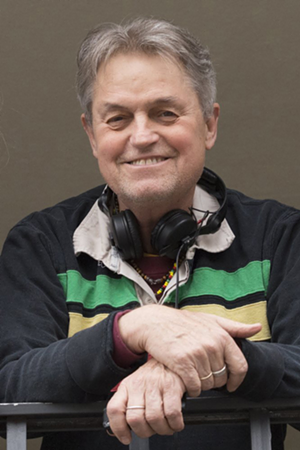But watching his films has always felt like getting close to him, closer than I might have been to some acquaintances. He wasn’t necessarily speaking to you in a direct sort of way, making grand pronouncements or auteuristic statements. Demme was simply there beside you as you watched his films, making sure you saw what he wanted you to see in that moment.
Moviecitynews.com, a film-based aggregate site, immediately posted the following quote from Demme: “One of my favorite things in watching any performance on film is when there isn’t a lot of cutting going on and when you get a chance to become really absorbed the artist in hand. The same way we do, hopefully, at a concert, when we get a chance to really trip in to something that’s happening onstage. Whether the singer’s singing, or one of the other musicians is playing, we sort of stay there instead of cutting round with our eyes a lot.”
As a 1980s teenager, I discovered Demme later than I care to admit. I was a decade behind on seeing Melvin and Howard (1980), which put everyone on notice about this talented storyteller. I got hip to Demme, for real, during an undergraduate English class in which film replaced the great literary tomes. I sat through multiple screenings of 1986’s Something Wild prior to our class discussion, immediately recognizing why this grand, modern Odyssey had made the assignment list alongside American Graffiti (George Lucas), Badlands (Terrence Malick) and The Conversation (Francis Ford Coppola).
In Something Wild, Demme never announced his presence or revealed his hand manipulating the strings while showing us this world in which comic adventure unexpectedly swings to violent confrontation. Each time I watched the film, I honestly forgot to even look for him in the mix. I was then able to catch 1988’s Married to the Mob on the big screen and, from that point on, I never missed a major Demme release.
At the top, I mentioned never having even a near miss with meeting Demme, which isn’t quite true. I lived downtown in the City of Brotherly Love during the filming of Philadelphia and passed by set locations on Chestnut Street where they shot the scenes between Tom Hanks and Denzel Washington in the modest law office of Washington’s character. Walking home from work each evening, I couldn’t avoid the set, but I refused to hover around the locations to try to catch a glimpse of the stars or Demme.
I saved my anticipation and excitement for the screening and was rewarded. Demme was showing me something a bit more intimate about these familiar spots — things I would never forget.
I would be remiss if I didn’t mention his award-winning work on Silence of the Lambs (1993). As well as it stands up more than 25 years later, to me it offers but the faintest whisper of a presence from him. I would rather turn to Demme’s subsequent remakes — 2002’s The Truth About Charlie, an update of 1960s sophisticated thriller Charade, and 2004’s The Manchurian Candidate — where he refused to succumb to slavish devotion to the source material. There was a curiosity in his reimaginings, despite the fact that neither film blazed a new alternative path for its narrative.
We fawn over the genius of the beautiful mind able to dazzle us with discoveries that have the potential to transform the fabric of our lives and world, but I believe that’s too much, too far removed from most of us. Demme embodied the kind of flights of fancy that could be relayed in layperson’s terms. He wanted us to see and feel the narrative possibilities, and he was so good at presenting them to us in ways that spoke directly to us.
I’d rather not say goodbye, Mr. Demme. Instead, I’ll be seeing (and feeling and hearing) you every time I watch one of your films.
How’s that for a legacy?
CONTACT TT STERN-ENZI: [email protected]


